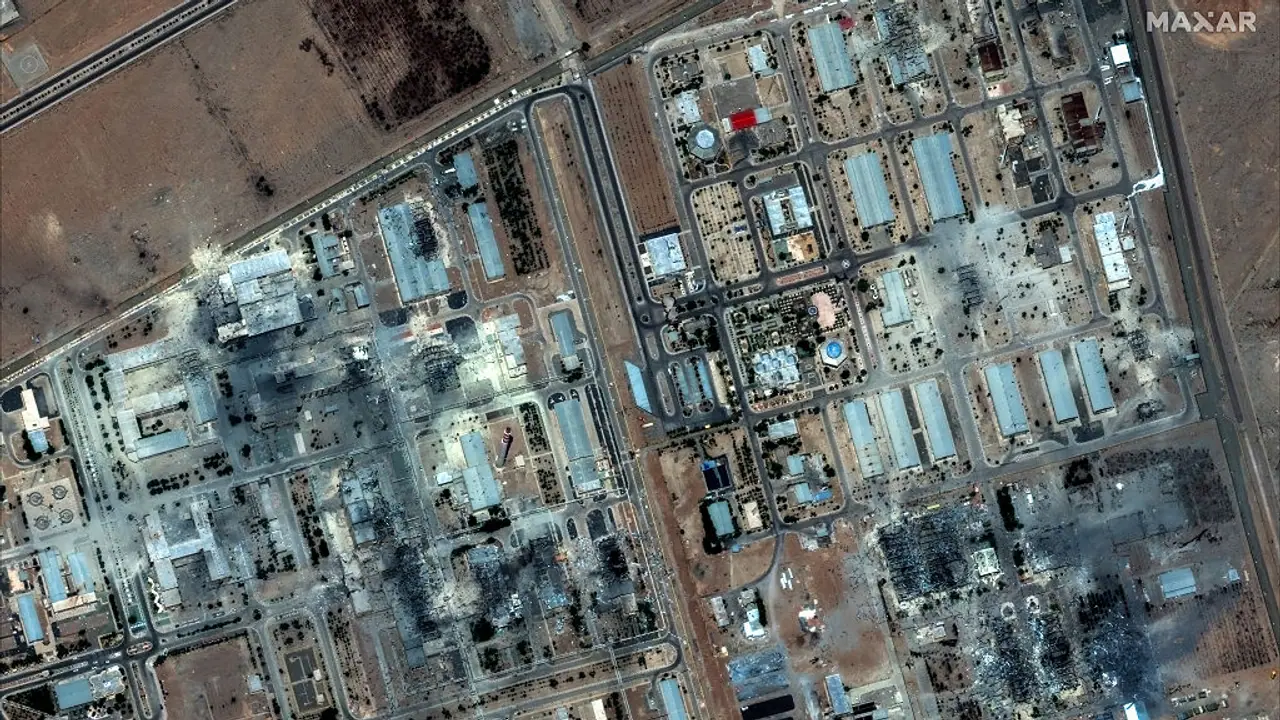Israel says 14 Iranian nuclear scientists were killed in targeted strikes aimed at halting Tehran's nuclear weapons programme. The covert operation marks a major escalation in Israel’s efforts to disrupt Iran’s atomic ambitions.
Tel Aviv: Israel has publicly acknowledged a covert military campaign in which 14 Iranian nuclear scientists were assassinated, a move officials describe as a calculated strike to cripple Iran’s nuclear weapons programme.

Key scientists eliminated to halt nuclear development
Speaking to the Associated Press, Joshua Zarka, Israel's ambassador to France, confirmed the operation aimed to dismantle Iran’s nuclear capabilities by eliminating individuals directly involved in the design and production of nuclear weapons.
"They were killed not because of the fact that they knew physics but because of the fight that they were personally involved in the creation, fabrication and production of a nuclear weapon," said Zarka.
Nine scientists were killed in the first wave of June 13 strikes
According to Israeli military officials cited by the Associated Press, nine of the 14 Iranian nuclear scientists were killed in the initial wave of Israeli airstrikes on June 13. Those targeted reportedly included physicists, chemists, materials scientists, explosives experts, and engineers, individuals who, according to Israel, possessed decades of accumulated experience in nuclear weapons development. Israeli officials maintain that these scientists were not merely academic experts but were actively working on the design and production of a nuclear bomb.
Israel says assassinations delayed programme by years
Zarka stated the targeted operation has set back Iran’s weapons development by several years.
"The fact that the whole group disappeared is basically throwing back the programme by a number of years," he said.
Experts warn knowledge can be regenerated
Analysts say while the killings may slow Iran’s progress, they cannot erase nuclear knowledge.
“Blueprints will be around… Ph.D. students will figure it out,” said Mark Fitzpatrick, a senior analyst at the International Institute for Strategic Studies.
Fitzpatrick added that Iran likely retains a secondary tier of experts ready to continue the programme.
UK and EU call for diplomatic solutions
UK Foreign Secretary David Lammy warned military action alone is not enough.
“Strikes cannot destroy the knowledge Iran has acquired over several decades.”
European nations are now urging renewed diplomatic efforts to prevent nuclear escalation in the Middle East.
Israel breaks from history of deniability
While Israel has long been suspected of assassinating Iranian scientists, including Mohsen Fakhrizadeh in 2020—this is the first time it has publicly confirmed such operations.
Zarka did not directly acknowledge Fakhrizadeh’s killing but said Iran’s nuclear timeline has repeatedly been pushed back by sabotage.
“Iran would have had a bomb a long time ago” without these setbacks, he said.
Legal debate over targeting scientists
The legality of the killings remains contested under international law. Legal scholars note that civilians not directly participating in hostilities are protected under the Geneva Conventions.
However, some argue that scientists involved in active weapons production may qualify as combatants.
“These scientists were working to eliminate Israel,” said Steven R. David, professor at Johns Hopkins University. “As such, they are legitimate targets.”
Others urge caution.
“We don’t have all the facts about their roles,” said Laurie Blank, an Emory University law expert.
Pavel Podvig, a Geneva-based nuclear analyst, questioned the precedent being set.
“Do you start killing students who study physics? This is a very slippery slope.”


